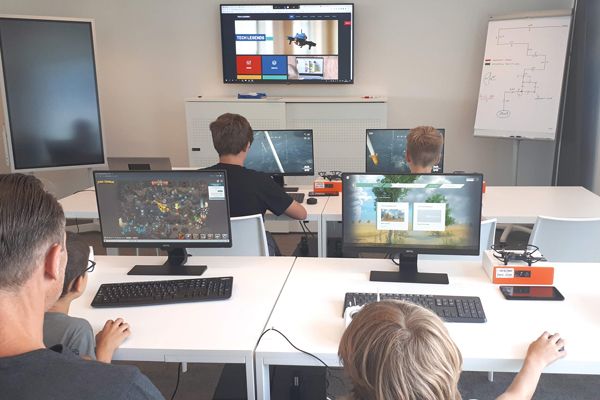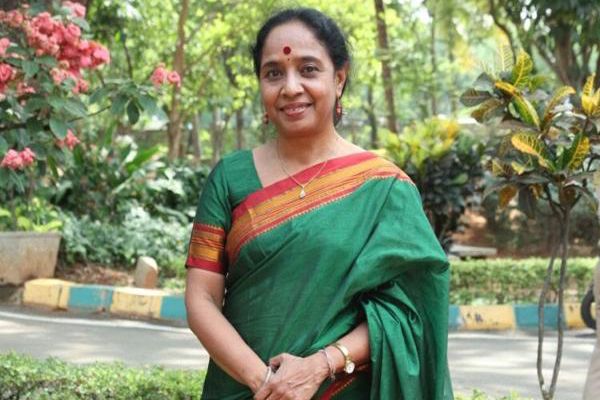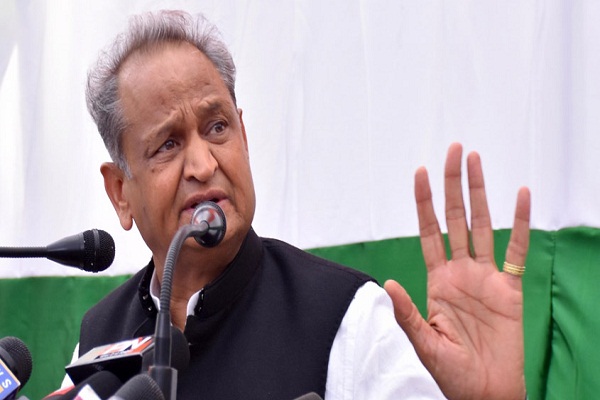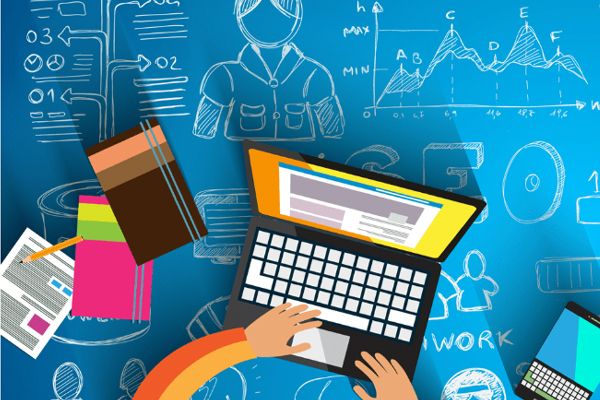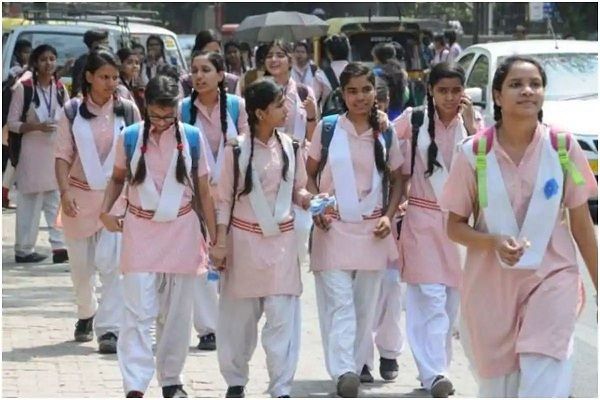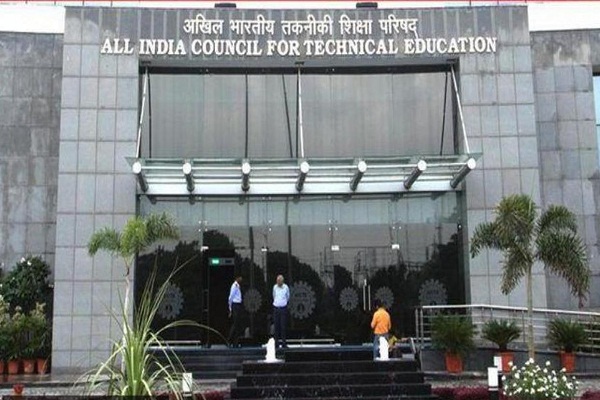Education as a field has been massively and positively influenced by technology. And this influence will be even greater by 2030. In recent times, technology has influenced how businesses are operating from last few decades by Pankaj Samantray of Elets News Network.
E ducation technology is already part of our lives when it comes to learning, thanks to Coronavirus pandemic. It is difficult to find a part of our lives that technology hasn’t influenced fundamentally. Educational technology is here for facilitating learning and improving academic performance.
The COVID pandemic has accelerated the usage of technology in education sector.
Education as a field has been massively and positively influenced by technology. And this influence will be even greater by 2030. In recent times, technology has influenced how businesses are operating from last few decades.
Also read: Is Indian Education Sector Ready for Industrial Revolution 4.0?
Education is as old as humanity itself. Our ancestors were educated within the family or tribe on how to farm, use tools, make fire, and hunt. Eventually, education became confined within the various priesthoods of ancient civilisations’ until the Greeks established the likes of philosophical mentorship.
In the last 2,000 years, there have been an array of education options, such as tutorship, apprenticeship, and seminary school, up until the 19th century when the concept of K-12 (publicly-supported school grades prior to tertiary education) took hold, existing alongside private, higher education institutions to this day.
Now, with the advent of sophisticated digital technologies, EdTech is empowering educators to expand their reach, while also empowering students to be able to learn independently via educational software.
There are, also, many online libraries that assist teachers and students with comprehensive reading material. Teachers and lecturers are also given the opportunity to post their teaching material online for their students to study.
With the current rate of growth in the technology sector, future educational technology is likely to advance the quality of education or even the ways we teach and learn.
Digital transformation of many educational functions will happen incredibly fast. This transformation can be managed in-house or by outsourcing it to third-party service providers with expertise in specific industries. It’s already a fact that many educational organizations are adopting cloud-based technologies for marketing and recruiting, as the competition for attracting the best students is increasing.
Multi-channel admissions experiences, where prospective students can interact not only by phone and email but also via social networks, video chat, and other similar technologies, will soon be the norm.
Also, alumni relations will quickly be adopting modern communication tools to improve alumni engagement. Finally, as the number of on-campus students possibly decreases, other critical functions such as college counselling, career services, and tech support will all be moving to a primarily digital delivery system.
The future of technology in education is about adapting to the fast-changing world, giving students an opportunity to choose their own way of learning, combining theory and practice, always considering the current demand on the job market.
Educators, Ed Tech entrepreneurs, as well as people actively involved in education, are trying to make realistic scenarios on what is the future of education technology. All this by taking into consideration the investments that are being made into education and the fact that the global expenditure on education is projected to reach $10 trillion by 2030.
Education will be the most important asset for people and their governments in the future. As global population grows, the education market and its complexity are massively growing too. New skills are entering the picture and as automation is prominent in our every-day lives, kids may be trained for jobs that do not exist right now.
In addition, the number of students will be greatly increased with the major driving forces being Africa and Asia, continents that today have a great number of kids who still do not have access to education.
According a survey, there are five major scenarios of how the education technology landscape could evolve:
Education-as-Usual: This is the scenario that represents education as it is today. Institutions are the main source of education and education technology contribution is present but not a major issue.
Regional Rising: Regional cooperation is the act of enhancing relationships through regional rules and institutions in the same state or region. Regional integration has the objective of better cooperation for political and economic purposes. Global Giants: With the internet playing such a prominent role in our lives nowadays, globalization barriers have been removed when it comes to education technology. And this outcome will be even more prominent in the future. Personalized experiences in education will be created and global giants and multinational companies will most likely invest in education and educational technology. Peer-to-Peer: Online learning will be the new norm. The peer-to-peer economy will dominate the way we live, work and learn. Smartphone ownership shapes learning delivery and students will be able to, literally, carry their learning experience in their pockets. Distributed ledger technology underpins the peer to peer economy and supports skills verification.
Robo revolution: The advancement of artificial intelligence technology will impact global economic growth by 2030. AI applications and algorithms will replace humans in repetitive tasks and teaching will be assisted by technology. At the same time, new jobs will be hopefully created in order to create and upgrade AI algorithms. Technology in 2030 will play a critical role in education as well as in technology-assisted learning processes. It will be focused on information processing, decision making as well as learning. It will help students have a more comprehensive learning experience.
Another exciting possibility that EdTech can bring to the table is to bridge the gap between theory and application by developing experiential learning technology – which is often lacking in a traditional classroom curriculum.
The percentage of jobs requiring AI skills has grown four times since 2013, by 2030 all industries will use AI and robotics especially in the field of marketing and sales. Customer service is a big user of AI technology such as chatbots, product selection and customer classification/routing. That means that traditional jobs in these fields, such as customer service, may disappear.
Mobile devices are already a big part of our lives and this connectivity will certainly shape how learning happens in the classroom. By 2030 half the world’s youth will live in countries with a mobile-first internet connection. Face to face learning will probably be the old way of learning and thus new ways of transferring knowledge through mobile devices will be adopted by teachers and institutions.
Also read: India will be the torchbearer of Industrial Revolution 4.0, says Navin Mittal
Learning management systems dominate online environments in every field of education. However, newer technologies with a focus on interaction rather than file management will take over in the future. But, the most important thing is that the learning management system objective is and will stay the same: making sure everyone in the education field is working towards a better future and all this with the help of technology.
When it comes to higher education, EdTech is still lagging. In order to really encourage students to invest their time in online higher education, the rewards need to be there. Hopefully, as distance learning technologies develop further, high-quality education will become increasingly affordable. Ultimately, the goal of EdTech should be to make superior education accessible to people of all backgrounds. If used correctly, it can be a powerful weapon for social equality. It’s encouraging to see that there is such eager investment into the industry, but only time will tell if the industry lives up to its expectations.
Educational technology is not only a simple upgrade into the educational world but a key to better collaboration in education and thus a better future for us and our children.
The world of education is likely to constantly change and develop in a rapid way over the next few years, not just in the application of new technologies but also when it comes to learning. Educational institutions must not only focus on their day to day operations but also figuring out how they will better use technology for enhancing the learning process.












